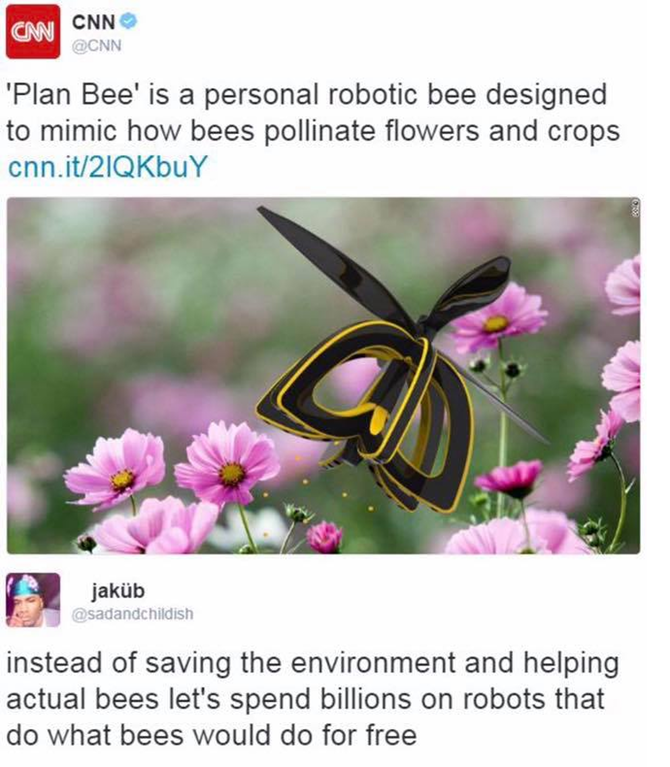Are you against the development of robotic bees to replace the increasingly scarce bee population?
While the population decline and the Africanization of honey bees have been absolutely devastating to ecologically dependent pollination systems, this does not mean we should reject or ignore the benefits of robotic bees or postulate that this is a “failure” of capitalism.
The primary advantage of capitalism is its ability to produce implicit wants before they are explicitly demanded.
What the above statement boils down to is capitalism is the only economic system that produces products before people even know they want or need it. This method is achieved through invention, innovation, entrepreneurship, and risk; things lacking in socialistic economies and completely absent in centrally planned economies.
Arguably the greatest innovator in American history (regardless of his personal beliefs), Henry Ford summarized the essence of demand in one of his more referenced quotes, though whether he actually said it or not is questionable at best.
“If I had asked people what they wanted, they would have said faster horses.”
Regardless of the origin of the quote, it beautifully represents how inventors, innovators, and entrepreneurs push advancements.
These risk takers’ ability to develop solutions to seemingly unsolvable problems is what makes capitalism the greatest problem solving tool at the disposal of humanity.
Let’s take a step back... way back... to the first half of the 1800s.
Famed Father of Utilitarianism, Robert Malthus, theorized what he dubbed the “crisis point.” The crisis point is based on two assumptions: population grows exponentially, and resource gathering in linear.
While is first premise is logical and empirically observed, his second assumption is certainly logical, but far from empirically true.
Malthus believed that once population passed its equilibrium with resource gathering the world would experience mass famine and death.
Here is why we rely on empiricism and not logic:
World Population in 1830: roughly 1.042 billion people
World Population in 2015: 7.256 billion people
Number of Great Famines since 2000: 0
Let me just frame this for a second. The entire human population growth from the first Homo sapien to 1830, literally five million years, was less than the population growth from 2000 to 2015, yet there were not great famines. Why?
Capitalism.
This may sound like pandering, but it really isn’t. Capitalism was first condensed in 1776, but it was able to fully evolve and modernize on the onset of the Industrial Revolution.
Here capitalism’s full benefits were realized; the ability to promote innovation which continuously squeezes more and more production from the same inputs.
An acre of farmland is the same size today as it was in 1830, but innovation has increased the production of that land exponentially; and right there is Malthus’ folly. Capitalism allows for the exponential growth of resources.
To step forward to today, capitalism is accelerating in its ability to increase efficiency, but even more impressively is capitalism is beginning to heal the wounds that industrialization causes. Entrepreneurs all over the world are addressing issues from ocean pollution to deforestation to the decreasing population of bees.
Industrialization is a necessary evil to support increased populations and longer life spans; capitalism should be praised for its ability to solve problems, not chastised for the negative externalities of industrialization, externalities that free markets have been increasingly reducing.
Whether it is genetically modifying E. Coli bacteria to produce insulin or building robotic bees, whatever the solution is to a problem, pure capitalism is going to get to a solution faster than any system mankind knows.
MORE FROM CAPITALISM.COM:
• Should Robots Pay Taxes?
• 5 Reasons Automation Should Be Embraced and 1 Reason to Be Scared
• Automated America: The Irrational Fear of Robotics












